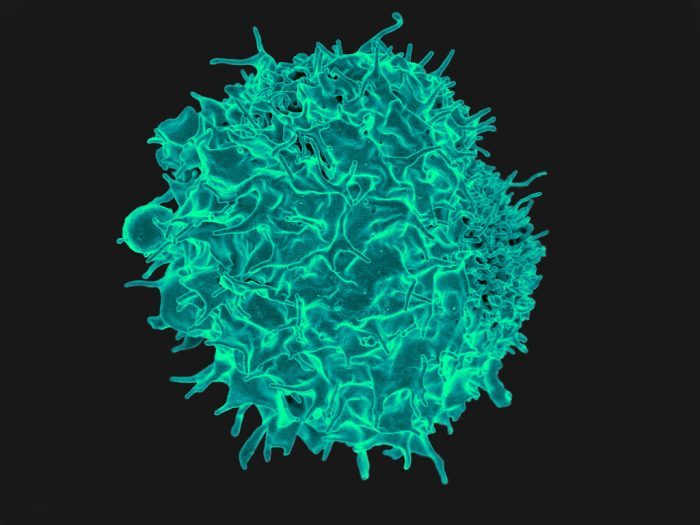Killer T-cell discovery at Cardiff
Cellular therapies are an exciting area in cancer research and clinical trials. The most widely known, CAR T-cell therapy, has had two product approvals in the hematological oncology space. CAR-T products are personalized to each patient, making them more costly and time-consuming to produce (although allogeneic products are under development). In addition, CAR T-cells have not yet been successful for solid tumors.
Now, a new type of killer T-cell has been discovered by the T-cell modulation group led by Professor Andrew Sewell at Cardiff University. This T-cell possesses a never-before-seen kind of T-cell receptor (TCR), which recognizes many human cancer cells and targets them for destruction, whilst, importantly, disregarding healthy cells.1 This opens the door for not only solid cancer T-cell therapies, but potentially a therapy that can be used for multiple tumor types.
The authors of the study, published in Nature Immunology, have said that this offers “exciting opportunities for pan-cancer, pan-population” immunotherapies not previously thought possible.2
Using genome-wide CRISPR-Cas9 screening, the group identified that the TCR recognized and destroyed most human cancer types via the monomorphic MHC class I-related protein, MR1, while remaining inert to non-cancerous cells. Interestingly, the study suggested that recognition occurred via sensing of the cancer metabolome.
What makes this potentially a ‘one-size-fits-all’ option is the human leukocyte antigen (HLA)-independent nature of the T-cell mediated targeting of the malignant cells. The cell surface HLA profile varies significantly between people, which has limited the utility of immunotherapies that are HLA-dependent. Unlike HLA, the MR1 protein does not vary between individuals, meaning it can be targeted almost universally. Further research into this TCR is eagerly anticipated.
Written by Cally Cameron Smith
Edited by Tom Southgate
References
- Crowther MD, Dolton G, Legut M, et al. Genome-wide CRISPR–Cas9 screening reveals ubiquitous T cell cancer targeting via the monomorphic MHC class I-related protein MR1. Nat Immunol. 2020 Feb;21(2):178-185.
- Cardiff.ac.uk [Internet]. United Kingdom. Discovery of new T-cell raises prospect of ‘universal’ cancer therapy. Available from: https://www.cardiff.ac.uk/news/view/1749599-discovery-of-new-t-cell-raises-prospect-of-universal-cancer-therapy. [Accessed 28 Jan 2020].








